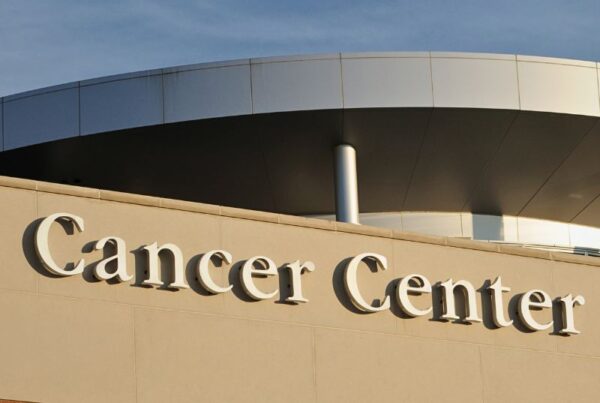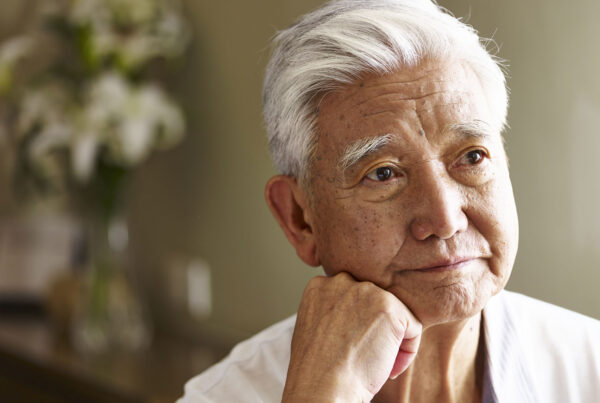We are thrilled to announce the launch of our new company, SpirituWell.
SpirituWell is a virtual spiritual care provider. Our mission is to expand access to spiritual care for the healing, comfort, reduction of suffering, and wellness of patients, family members, and healthcare professionals, where and when they need it most.
With our professional and denominationally diverse chaplain network, we will expand access to culturally-appropriate spiritual counseling, bereavement counseling, and other related services across the continuum of care.
The Growing Need to Support Spiritual Health
America’s 65-and-over population is projected to nearly double over the next three decades, from 48 million to 88 million by 2050. Exciting advancements in medical treatment will undoubtedly help many live happy and healthy lives as they age into their 70s, 80s, 90s, and beyond. Yet for many, aging regrettably is accompanied by health decline, loneliness, life disruptions, and loss. While no single remedy can treat these experiences that come with aging, for many, spirituality is among the whole-person approach to care that can help people age with grace and an improved quality of life. As our society ages, it’s imperative that spiritual health is prioritized. Studies have shown that those who incorporate spirituality or religion as part of their daily life experience reduced cognitive decline compared to those who do not. Use of spirituality or faith also is found to enable people to develop coping strategies to help accept their disease, maintain their relationships, maintain hope, and find meaning in their lives, thereby improving their quality of life.
The Impact of Spirituality on Caretakers
Aging of course does not only impact the individual experiencing a decline in health that might come with advanced age, but also impacts the people around them. It is estimated that over 65 million informal and family caregivers provide care to someone who is ill, disabled or aged in the U.S. We all know a spouse, partner, family member, or friend that provides care to a loved one who cannot fully care for themselves. Among informal caretakers, nearly 40 – 70% experience symptoms of depression. Spirituality has proven to be an important coping mechanism for caretakers as well. In one study, 70% of caregivers of people with moderate to severe dementia reported that their spirituality/religiosity had “a great deal” of importance in their lives and was associated with less depressive symptoms.
Of course, professional caregivers are not immune to the impact of providing care. A recent JAMA study showed that 32% of hospital physicians and 47% of nurses surveyed are experiencing burnout. As an aging population puts even greater strain on our communities’ healthcare professionals, unmitigated burnout will yield even greater provider turnover and gaps in care capacity. Among healthcare professionals as well, spirituality and religion have been shown to be an effective coping strategy to alleviate burnout. Recognition for the need to provide greater access to resources that can support the spiritual health of healthcare staff is long overdue.
Advancing Health Equity
Unlike other treatments and coping practices for confronting burnout or depression, processing a diagnosis, mourning a loss, or coping with a serious illness (e.g. medication or mental health therapy), spirituality is intertwined with an individual’s cultural and religious identity.
As the healthcare system confronts legacies of inequity that contribute to disparities in healthcare experiences and quality among ethnic, racial, and cultural minorities, such as those summarized by the Center to Advance Palliative Care, acknowledgement of a person’s religious/spiritual identify must be central to the provision of spiritual care.
Confronting the Need to Expand Access to Spiritual Care
With a tightening chaplain labor pool, how will provider organizations meet the ever-growing need for spiritual care services? With a population that is becoming increasingly diverse, how will the societal imperative and evolving regulatory requirement to advance health equity among cultural and religious minorities be achieved within spiritual care programs?
In partnership with acute care, palliative care, hospice, long-term care, substance use treatment, and chronic condition providers, SpirituWell aims to expand access to a diverse network of spiritual care providers. By providing 24/7 access to our highly experienced chaplains via our virtual care platform, we will provide convenient access to chaplains wherever they are needed – whether that be in a hospital bed, within a skilled nursing facility, within an outpatient clinic, or wherever a person calls home. With a highly experienced chaplain network representing 16 main religious denominations, we will help provider organizations meet the cultural and religious preferences of their patients, families, and staff, improving the experience of care and improving spiritual health.
Our chaplains will provide their services virtually. Virtual care has emerged as a transformative solution that expands access to healthcare services, including spiritual care. By leveraging technology, virtual care transcends the barriers of distance, time, and physical limitations, making it more accessible to individuals in need. Through our telehealth platform, individuals can connect with our chaplains no matter where they are – extending the reach of our chaplains into homes, rural communities, or to parts of the country where a member of a minority faith lacks access to other members of their religious community. The widespread adoption of virtual care has the potential to reach individuals who may have otherwise faced barriers in accessing in-person care, ultimately fostering greater inclusivity, convenience, and improved health outcomes.
Disrupting the Status Quo
Our founding team is driven by our mission and our lived experience. As healthcare industry leaders, we know that delivering high quality healthcare is challenging. We know that healthcare organizations are constantly asked to do more with fewer resources.
As religious leaders, we know firsthand the impact spirituality can have on a person’s quality of life, sense of existential meaning, and emotional comfort. We know that chaplains are too often undervalued and underutilized across the continuum of care.
As members of a religious-minority we know first-hand the alienation and stigmatization that members of a minority group experience when a well-intentioned individual seeks to apply cultural “blindness” to an interaction rather than acknowledging and embracing the diversity of experience and beliefs that make us who we are. We know first-hand how our sense of self is shaped by and intertwined with the unique customs, traditions, and shared values of our religious community.
Chief Executive Officer
Chief Spiritual & People Officer





